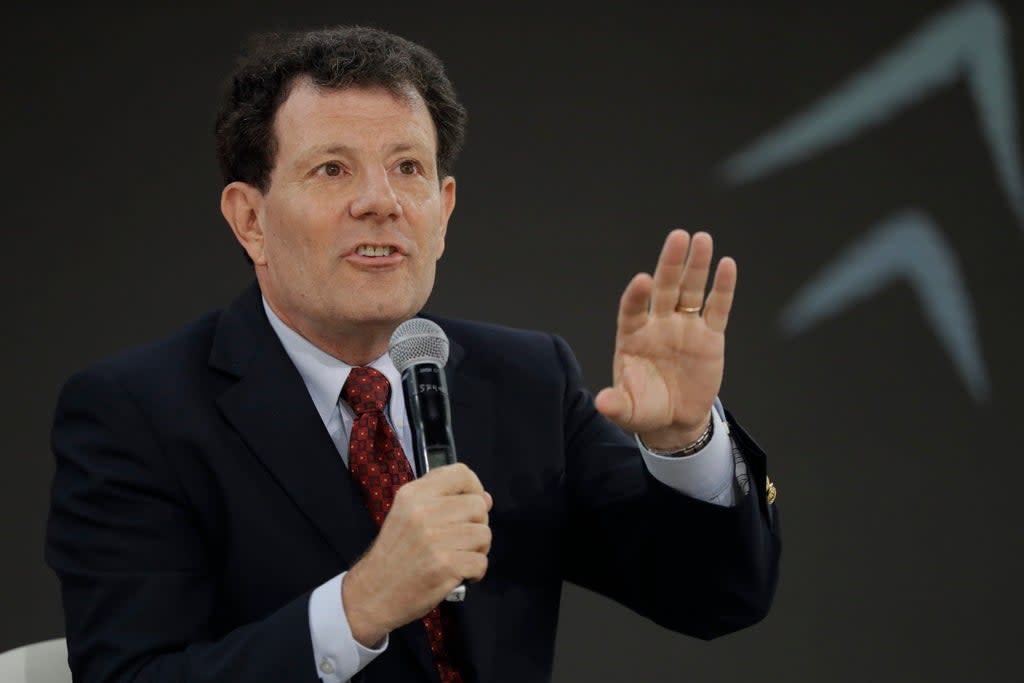Sex workers like me fear what will happen if Nick Kristof succeeds in his political career

Nicholas Kristof is running to be the next governor of Oregon. Known primarily for his opinion column at the New York Times, which ran for 20 years, Kristof is somewhat of a political newbie. In most cases, I think it’s a good thing when people who don’t come from a traditionally political background get involved on the local and state level — but in the case of Kristof, not so much.
For anyone who kept up with Kristof’s career, trepidation about his foray into politics is natural. This is the man who specializes in “human rights, women’s rights, health, and global affairs” and then writes in defense of sweatshops, not just once, but several times. “When I defend sweatshops, people always ask me: But would you want to work in a sweatshop? No, of course not. But I would want even less to pull a rickshaw. In the hierarchy of jobs in poor countries, sweltering at a sewing machine isn’t the bottom,” Kristof wrote in a 2009 column that raised a lot of eyebrows.
However, my primary concern with Kristof is not his sweatshop defense, which many writers have wrestled with before me. Instead, it is his anti-porn crusade, and if you consume adult media, it should be yours too.
In December of 2020, Kristof wrote a piece titled ‘The Children of PornHub’ which drew mass attention to the adult industry. This piece demonized the consensual porn industry, focusing on the small percentage of illegal content hosted on tube sites like PornHub and XVideos, sensationalizing it to the point of scandal. He wrote: “[PornHub] monetizes child rapes, revenge pornography, spy cam videos of women showering, racist and misogynist content, and footage of women being asphyxiated in plastic bags.” As someone who makes adult content myself, I wondered when I read that why Kristof focused in on PornHub and didn’t also tackle Facebook, which is the source of 90 percent of child pornography complaints annually? Indeed, in 2017, the BBC reported dozens of disturbing images to Facebook which featured the sexualization of children, and stated that 80 percent of those were not removed.
Yes, some videos depicting illegal and immoral actions made it past the screening process for PornHub. To say otherwise would be dishonest. But it’s also true that the site monetizes consensual voyeurism play, race play, BDSM content, and breath play: kinks that we can argue about from a moral standpoint forever, but which are explored in the majority of content in a legal way between consenting adults with the understanding that the consumers are also adults.
The impact of Kristof’s article about the adult industry was not minute. Some consequences were positive, like intensified verification systems on sites like IWantClips and Clips4Sale, which assure any videos with more than two performers have ID records on file with the site as opposed to the creators doing the record-keeping. But even such changes are complicated: where do they leave survival sex workers and immigrant porn performers who don’t have the means to access American ID’s or ones that will be accepted by the system?
Other developments after Kristof’s article, like Onlyfans’ prospective porn ban and Visa and Mastercard electing to no longer work with PornHub, have actively put women who rely on sex work for income in uncomfortable financial positions at best, and in active danger at worst. Sex workers no longer have safety spaces like Backpage for in-person work, so when we’re pushed out of online spaces where we can safely make money, the impact is real. Are we expected to return to newspaper ads and the street corner because porn makes you uncomfortable?
Sex workers have been pushed out of online spaces for years, ever since FOSTA-SESTA took effect. Social media platforms kick us off and censor us at exorbitant rates, so we relied on these online content hosting platforms for advertising and income. To lose that would essentially make safe sex work nearly impossible in the age of the internet. Maybe that’s what some people want, but it’s objectively bad for the safety of huge swathes of women.
Kristof celebrated when his work took down an entire channel of income for creators on Modelhub. But do we truly want a man in office who demonizes the one industry where women can reclaim their societal sexualization and profit from it?
Perhaps Kristof’s campaign for governor will be bankrolled by groups like Exodus Cry, whose entire mission is to eliminate the porn industry as a whole. But if he wins, what can we expect to happen to Oregon’s sex workers? Will it be another Texas, which bars adults between the ages of 18 and 20 from working in “sexually oriented” businesses like strip clubs, even as they are judged old enough to fight and die for their country?
Pornstars and adult industry workers are people who deserve the right to work and make income, to put food on their tables, to pay their bills without worrying that their income source will suddenly be shut down because of the actions of a few individuals. The industry of consensual sex work and sexual exploitation aren’t one and the same, and shouldn’t be treated as such. In fact, buying your porn directly from content creators is a great way to assure you’re consuming it ethically.
Read More
It’s a tragedy this government is falling so short over climate action | Lisa Nandy
Angela Rayner’s apology for calling Tories ‘scum’ should be praised | John Rentoul

 Yahoo News
Yahoo News 
